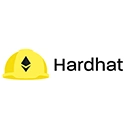Hardhat is a powerful Ethereum development framework that allows developers to build, test, and deploy smart contracts. One of the key features of Hardhat is its extensibility through plugins. Hardhat plugins are modules that add new functionalities or enhance existing features of the Hardhat environment. This guide will explain what Hardhat plugins are, their purpose, and how to use them effectively, along with sample code and usage scenarios.
1. What Are Hardhat Plugins?
Hardhat plugins are JavaScript modules that can be integrated into your Hardhat project to provide additional capabilities. They can simplify tasks such as:
- Testing: Plugins can help set up testing environments, manage test networks, and provide utilities for testing smart contracts.
- Deployment: Plugins can automate deployment processes, manage migrations, and interact with various Ethereum networks.
- Verification: Plugins can assist in verifying smart contracts on block explorers like Etherscan.
- Integration: Plugins can integrate with other tools and services, such as IPFS for storing files or OpenZeppelin for security audits.
2. How to Use Hardhat Plugins
To use Hardhat plugins, you typically need to install them via npm and then configure them in your Hardhat project. Below are the steps to install and use a popular Hardhat plugin: hardhat-ethers, which integrates the Ethers.js library for interacting with Ethereum.
2.1. Installing a Plugin
To install the hardhat-ethers plugin, run the following command in your project directory:
npm install --save-dev @nomiclabs/hardhat-ethersThis command installs the plugin as a development dependency in your Hardhat project.
2.2. Configuring the Plugin
After installing the plugin, you need to configure it in your Hardhat project. Open the hardhat.config.js file and add the following line:
require("@nomiclabs/hardhat-ethers");Your hardhat.config.js file should look something like this:
require("@nomiclabs/hardhat-ethers");
module.exports = {
solidity: "0.8.0",
networks: {
hardhat: {
chainId: 1337,
},
},
};2.3. Using the Plugin in Scripts
Once the plugin is configured, you can use it in your scripts. Here’s an example of how to deploy a simple smart contract using the hardhat-ethers plugin:
// SPDX-License-Identifier: MIT
pragma solidity ^0.8.0;
contract SimpleStorage {
uint256 private storedData;
function set(uint256 x) public {
storedData = x;
}
function get() public view returns (uint256) {
return storedData;
}
}Create a deployment script in scripts/deploy.js:
async function main() {
const SimpleStorage = await ethers.getContractFactory("SimpleStorage");
const simpleStorage = await SimpleStorage.deploy();
await simpleStorage.deployed();
console.log("SimpleStorage deployed to:", simpleStorage.address);
}
main()
.then(() => process.exit(0))
.catch((error) => {
console.error(error);
process.exit(1);
});Run the deployment script with the following command:
npx hardhat run scripts/deploy.js --network localhost3. Popular Hardhat Plugins
There are many useful Hardhat plugins available. Here are a few popular ones:
- hardhat-waffle: A plugin for testing smart contracts using the Waffle framework.
- hardhat-etherscan: A plugin for verifying contracts on Etherscan.
- hardhat-gas-reporter: A plugin that provides gas usage reports for your smart contracts.
- hardhat-deploy: A plugin for managing deployments and migrations of smart contracts.
4. Creating Your 4. Creating Your Own Hardhat Plugin
If you want to create a custom Hardhat plugin, you can do so by following these steps:
4.1. Setting Up Your Plugin
Create a new directory for your plugin and initialize it with npm:
mkdir hardhat-my-plugin
cd hardhat-my-plugin
npm init -y4.2. Writing the Plugin Code
Create an index.js file in your plugin directory. Here’s a simple example of a plugin that logs a message when Hardhat is run:
task("hello", "Prints 'Hello, Hardhat!'")
.setAction(async () => {
console.log("Hello, Hardhat!");
});
module.exports = {
solidity: "0.8.0",
};4.3. Registering the Plugin
To use your plugin in a Hardhat project, you need to require it in the hardhat.config.js file:
require("./hardhat-my-plugin");4.4. Running Your Plugin
Now you can run your custom task using the Hardhat command line:
npx hardhat helloThis will output:
Hello, Hardhat!5. Conclusion
Hardhat plugins are a powerful way to extend the functionality of the Hardhat development environment. By using existing plugins or creating your own, you can streamline your development process, automate tasks, and enhance your Ethereum development experience. Whether you are testing, deploying, or integrating with other services, Hardhat plugins can significantly improve your workflow.

